
“I made a mistake.” Those are hard words for some people to utter when there has been a screw up and they’re responsible for it. It is especially hard given the blame game culture that exists in most workplaces and work relationships. That’s where people are quick to point a finger at you and make you feel shame. After all, nothing focuses the mind as like a hanging as Samuel Johnson once said.
I feel very differently. If I made a mistake, I admit it and try to learn from it.
Carol Dweck, a psychologist at Standford, has spent decades demonstrating that one of the crucial ingredients of successful education is the ability to learn from mistakes. “Unfortunately, children are often taught the exact opposite. Instead of praising kids for trying hard, teachers typically praise them for their innate intelligence. . . . This type of encouragement actually backfires, since it leads students to see mistakes as signs of stupidity and not as the building blocks of knowledge.”
The ingredients of successful social media strategy are to learn from mistakes and Networked Nonprofits have cultures that allow this happen.
I had the pleasure of doing a mini-workshop on the “10 Habits of Highly Successful Tweeple” for a small group of people from nonprofits who work in the sexual and reproductive health movement. I finally had the right audience to share the c-word on Twitter mistake story that I had read about over the summer thanks to Wendy Harman. It’s a great one to add to the Failfaire archive.
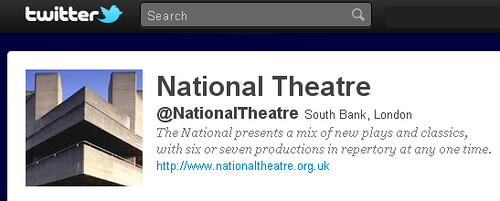
Over the summer, London Mayoral advisor Steve Norris commented in the media that “the National Theatre should have a Compulsory Demolition Order” in a public hearing about the city’s South Bank arts precinct. The National Theatre responded on its Twitter account with:

Clearly, this was a slip of the fingers. Maybe the person who runs their Twitter account meant to send the Tweet on their personal account. Maybe they should have thought twice before click send. But the reaction from Twitter followers was more surprising.
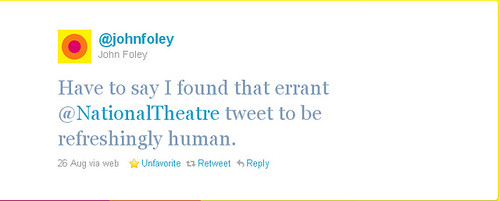
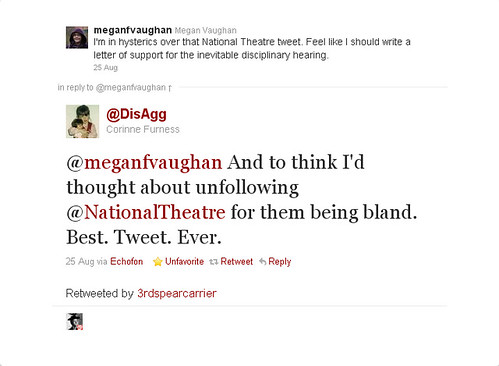
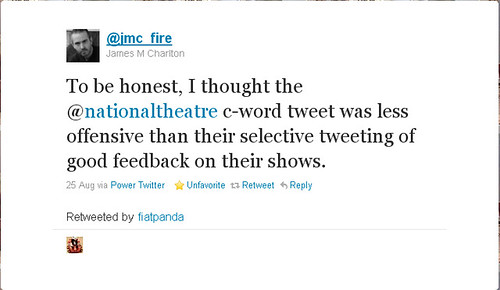
Yet, despite this reaction, the next tweet from the National Theatre was to blame an anonymous hacker.

They didn’t fool their Twitter followers. The reaction:
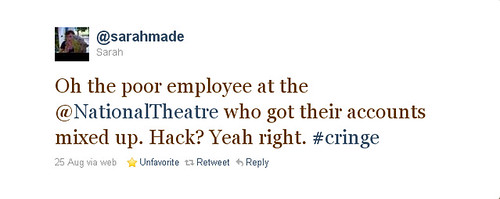

It was clear that the audience didn’t buy into Theatre blaming a hacker for the slip of the fingers or poor judgment. Mistakes happen in social media (and many other areas). In social media, if we are honest and human about, we will be forgiven.
Danielle Brigida from National Wildlife Federation said the same thing when we presented on a panel at Blogworld. She told the story of how a co-worker had tweeted something about how they were excited about the new season of the show Dexter by mistake on the organization’s account instead of her personal account. Mistakes happen. They apologized and moved on.
Nonprofits aren’t the ones that have screwed up with social media. Here’s a history of corporate blunders.
[slideshare id=5361415&doc=socialmediascrewups-101005070711-phpapp01]
What was your organization’s worst social media mistake? How did you handle it?
Beth Kanter is a consultant, author, influencer. virtual trainer & nonprofit innovator in digital transformation & workplace wellbeing.
